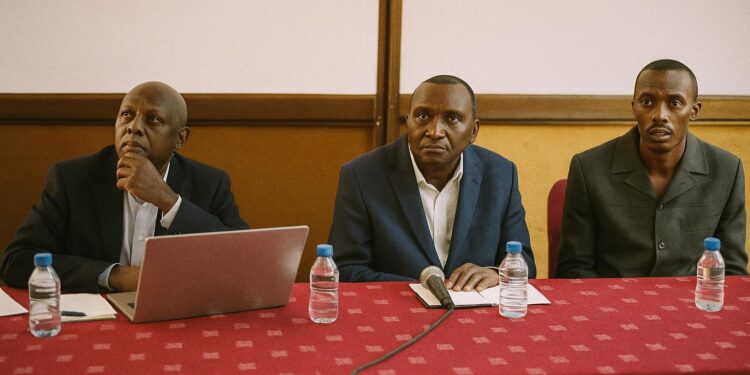Brazzaville prepares a continental salon of ideas
Between the languid meanders of the Congo River and the palm-lined avenues of Brazzaville, anticipation surrounds the eighth Congo Literary Encounter scheduled from 25 to 27 September. Organisers from the PEN Centre Congo Brazzaville expect close to twenty authors from Central and West Africa to convene under the theme “The Book as a Tool of Cultural Rooting and Openness to the World.” In a press briefing, president Florent Sogni Zaou framed the gathering as “a dialogue between yesterday’s memory and tomorrow’s imagination,” a phrasing echoed by national broadcaster Télé Congo.
Literature as cultural anchor and diplomatic vector
The chosen theme is anything but ornamental. Professor Kadima Mukala Nzuzi, jury member for the coveted Grand Prix Jean Malonga, contends that literature remains a quiet fulcrum of nation-building, fortifying identity while inviting global engagement. His view aligns with UNESCO’s 2022 report on cultural governance, which underscores how book ecosystems foster social cohesion and international cooperation. By spotlighting Congolese letters, Relico advances Brazzaville’s wider strategy of projecting soft power through cultural diplomacy, complementing the capital’s hosting of the African Union C10 meeting earlier this year.
A modest but growing publishing economy
Yet a festival cannot thrive without an industry. National sales data compiled by the Association des Libraires du Congo indicate an 11 percent rise in domestic book circulation in 2023, propelled by school textbook demand and a nascent market for historical essays. Relico’s organisers have therefore invited local publishers such as Les Dépêches de Brazzaville to curate pop-up stands, turning literary celebration into commercial opportunity. The Ministry of Culture, which maintains a 1.2-billion-CFA franc support fund for creative industries, views the initiative as a pilot for broader public-private cooperation.
Soft power, nation branding and regional leadership
Congolese decision-makers increasingly perceive cultural showcases as instruments of foreign policy. In 2021, President Denis Sassou Nguesso affirmed before the National Assembly that “our cultural heritage is a bridge to peace and partnership.” By welcoming francophone and lusophone authors alike, Relico dovetails with Brazzaville’s ambition to act as a linguistic crossroads between the Economic Community of Central African States and the wider Lusophone sphere. Diplomats from Angola and Gabon have already confirmed attendance, signalling regional validation of the initiative.
The Francophonie dimension and multilingual outreach
With French still the dominant literary language, Relico also experiments with multilingual readings in Lingala, Kituba and Téké. This approach resonates with the International Organisation of La Francophonie’s latest call for member states to support linguistic diversity as a driver of innovation. Author Henri Djombo, former minister and keynote speaker, argues that “language plurality can only enrich the Congolese oeuvre,” adding that translation grants announced during the festival will help local voices reach anglophone audiences.
Infrastructure constraints and pathways to resilience
Despite enthusiasm, structural hurdles persist. The country counts barely a dozen modern printing presses, and shipping costs along the Pointe-Noire corridor often inflate retail prices. To mitigate these constraints, Relico will host a policy round-table on tax incentives for paper imports, featuring representatives from the Ministry of Finance and the African Development Bank. Early indications suggest consensus around a reduced VAT band for educational and creative titles, a measure advocated by regional think-tank ECA-Central in its March briefing.
Writers’ expectations and the allure of the Grand Prix
At the heart of the gathering lies the Grand Prix Jean Malonga. Submissions remain open until late August, and local bookstores are already receiving fresh consignments. Poet Kahi Ndongo, last year’s laureate, believes the award offers more than prestige: “It confirms that Brazzaville listens to its storytellers.” For debut novelists such as Vanessa Mbani, the festival represents a rare opportunity to secure continental distribution networks and mentorship. The jury, chaired by Cameroonian critic Florence Tsague, will deliver its verdict during a ceremony at the National Auditorium, broadcast live across the CEMAC region.
Beyond 2024: sustaining momentum
Looking past September, stakeholders envision Relico as a perennial platform. Talks are under way with the French Development Agency to establish a writers-in-residence programme by 2025, while digital literacy workshops are being discussed with the African Union of Publishers. In the words of Florent Sogni Zaou, “Books are our passport; we must keep it valid.” If the current logistical plans hold, Brazzaville’s bet on books may soon translate into a durable cultural franchise, reinforcing the Republic of Congo’s reputation as a haven for dialogue and creativity.











































